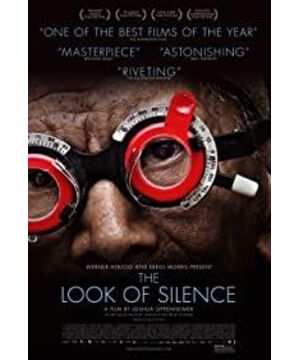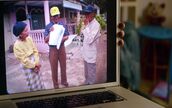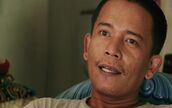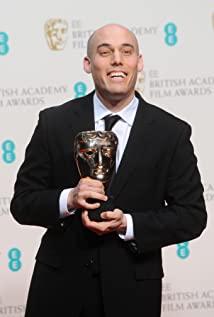However, the river in his hometown of Aceh was no longer clear. After the "930 incident" in 1965, the president of the military officer in power Suharto’s hunting and killing of suspected communists across the entire territory of Indonesia also exploded here. Thousands of intellectuals and young people were thrown into the river after being tortured and killed... Later, the residents of the river stopped eating fish, because the fish was probably fattened by their children. Among them, the old man’s forgotten eldest son, and the older brother Adi had never met, he struggling to escape after being stabbed by a firing squad one night, the army then ransacked his home again, using the excuse of taking him to the hospital. He tortured and cut off his penis halfway, and threw his mutilated limbs into the river, just like many other young people.
The crime has not been forgotten, and it is even an unbelievable "success" that has been repeatedly mentioned or even shown off by the murderer. The executioners with millions of lives continue to be the protagonists of this country. They are gangsters, police chiefs and even government officials. The families of the victims tremble and kill their children and brothers in an emotion far greater than understanding. The murderer is neighbor.
Joshua Oppenheimer, an American director who speaks Sumatran language, began to intervene in the video recording of the memory of the Holocaust as early as 13 years ago. In 2012, he produced a great documentary film "Killing Kingdom" that combines contemporary art and theater performances. The perpetrators in the film were so overwhelmed with the reenactment of the massacre scenes, which made the audience shudder. From them, there is no trace of guilt or regret at all. They sleep peacefully, live comfortably, and have a stable conscience. They even believe that they can go to a beautiful paradise behind them.
Such a situation proves that there must be a major problem with the national memory of Indonesia.
This time, Joshua has continued to work hard, starting from the perspective of the victim, eliminating other formalistic artistic methods, and presenting another masterpiece of record, "The Image of Silence" in a more profound way. The hero Adi, who bravely pursued the truth in the film, did not experience a massacre, but was a "substitute" born to the mother who lost her eldest son several years later. Through his acquaintance and communication with Joshua, he saw the director's "performance testimony" of the right-wing firing squad filmed from 2003 to 2005, and many of the "performers" continue to appear in this "Silent Image" middle. These materials may be the fuse that prompted Adi to find the cause of his brother's death, even if he and his brother had never met. He didn't want revenge, he just wanted to hear "I'm sorry" from the executioners or their loved ones before they ascended to heaven.
Facts have proved that it is not easy to realize this simple wish for granted. The survivors of the massacre persuaded him to stop, "Let him pass the past." The family members of the victim, including his mother, were worried that the more they knew, the worse the harm. After a long silence, the family members of the murderer responded unhappily, "We I have never heard my father mention these things. Why do Joshua and you have to come to uncover the scars so that they can’t get along well in reality?”; The murderer who has not yet died, although not in front of the resolute Adi He was proud of nothing, but after a long period of awkward silence, he had to spit out a "sorry".
The reason why Adi can approach these "terrible neighbors" is because of a convenient professional identity-an eye optometrist. From time to time, in the name of free optometry, he walked into the homes of these murderers who killed his brother. The reason why they can be identified as the murderers is also due to the high profile of the perpetrators-they used to recount in Joshua’s video footage 10 years ago, they danced and recounted when and where they were tortured and killed someone. "Deeds", one of them even published a comic book, telling the story of killing 32 Communists in chapters, and claimed to have drunk the blood of the victims, "that would avoid mental problems."
Unfortunately, in Indonesia, any case, including the massacre, will lapse after 18 years, which means that the executioners will never be punished by law. However, the National History Education brainwashed the children upside-down. The documentary footage followed Adi’s son’s class, and the teacher vividly told about the "Nine-Thirty Incident", "the Communists without faith captured and tortured six people. officers dug up their eyes, "while in another section of the 1967 NBC documentary, the members of the right-wing execution in front of the camera about:".. after Suharto came to power, communist activists have surrendered, sacrificed themselves enthusiastically requirements "
so , The professional identity of the optometrist and the active search for the truth also represent the director’s hope that with the help of the documentary, at least the brainwashing education can be reversed. The dazzling performance of the predecessor "Killing Kingdom" at this year's Oscars also proves that conscience movies can always exert the power of justice. The triumphant executioner began to worry about whether the trial would be restarted, and in July this year, Indonesia finally achieved a democratically elected government for the first time after the 65th anniversary of its independence.
The sad thing is that Adi can't reap the "sorry" of most of the perpetrators. Most of them have died with a smile, and the rest are about to die. And the victims, either gradually lost their memory due to the arrival of Alzheimer's disease, or continue to be silent and inertia brought about by fear, afraid to say what happened. After all, this is Indonesia that intentionally or unintentionally never remembers anything—the place where we say "forget everything in Java".
Adi’s old mother was playing with jumping beans on the table, chanting the name of her elder son, hoping that
he who heard the call would be able to develop a moment in the shell; the executioner in the video footage came to the river, gestured for victory, and took a group photo. Nostalgia, on the TV side, Adi is motionless, a silent image.
Echoing from end to end, in the dark night, a pair of trucks came slowly on the muddy dirt road. Several dim headlights were dazzling in the depth of field, like flames starting to burn, and it was like a real deal but destined to never be seen. Qing's crime.
View more about The Look of Silence reviews







